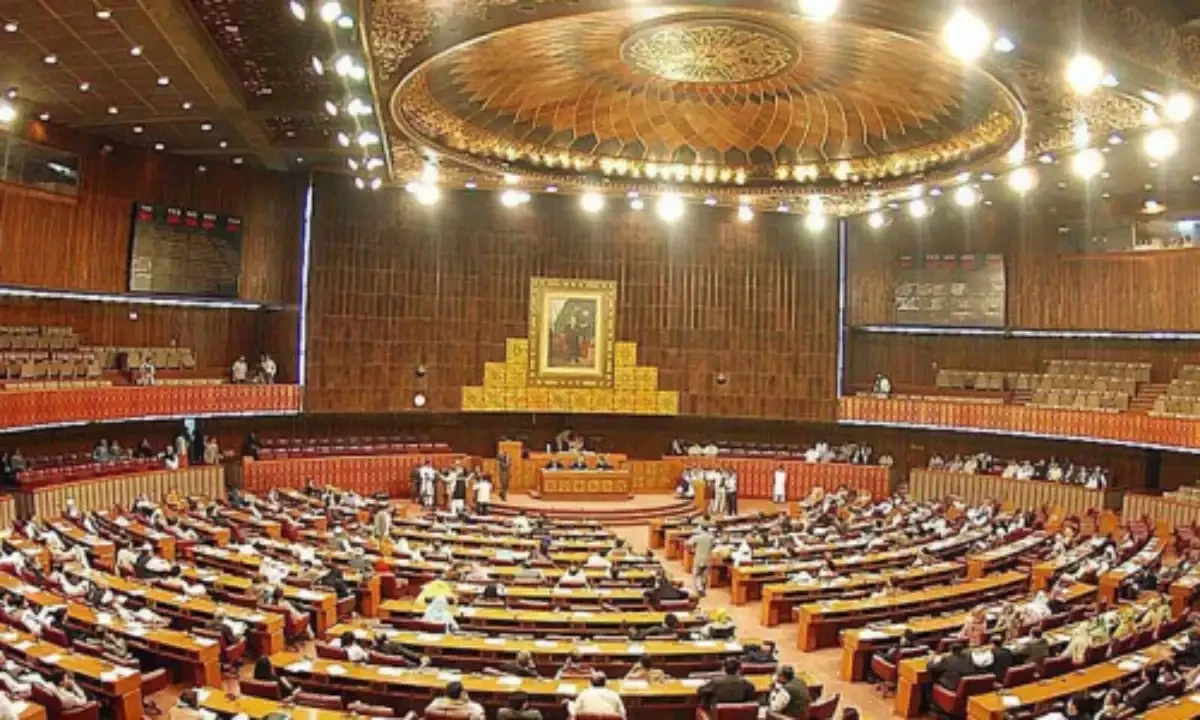Pakistan’s democracy ranking drops six places in 2024, report
Pakistan’s democracy ranking has fallen six places in 2024, placing it among the world’s 10 worst-performing countries, according to the latest Democracy Index report by the Economist Intelligence Unit (EIU).
The report analyses democratic trends in 165 independent states and two territories, assessing five key areas: electoral process and pluralism, government functioning, political participation, political culture, and civil liberties.
Based on scores, countries are categorised into four governance systems: full democracy, flawed democracy, hybrid regimes, or authoritarian rule.
Globally, democracy has declined, with Pakistan ranked 124th and receiving an overall score of 2.84, classifying it under authoritarian governance.
Also, read this
FAFEN report: Pakistan’s electoral representation remains stagnant from 2002 to 2024
Increase in salary approved for parliamentarians: sources
Senate session disrupted again as opposition protests; three members suspended
The report attributes the global decline to deteriorating scores in authoritarian regimes, noting that such governments tend to become increasingly repressive over time.
According to the report, 39.2 per cent of the world’s population now lives under authoritarian rule, a figure that has been rising in recent years.
Currently, 60 countries are classified as authoritarian.
The regional analysis highlighted that Asia and Australasia’s average democracy score fell for the sixth consecutive year, from 5.41 to 5.31 in 2024.
Bangladesh experienced the largest decline, followed by South Korea and Pakistan.
The report specifically noted that Bangladesh, South Korea, and Pakistan saw the most significant drops in global rankings, falling by 25, 10, and 6 places, respectively.
The EIU also observed that over half of the world’s population participated in elections across 70+ countries in 2023, including Pakistan.
However, it pointed out that authoritarian governments frequently engage in electoral manipulation.
Countries such as Azerbaijan, Bangladesh, Belarus, Iran, Mozambique, Pakistan, Russia, and Venezuela were highlighted for using all possible means to retain power.
Additionally, South Asian nations, including Bangladesh, India, Pakistan, and Sri Lanka, faced challenges related to electoral fraud, sectarian politics, and political instability.
The report emphasised that Pakistan’s general elections were marred by allegations of political pressure and government interference.
It also stated that the future of democracy in South Asia remains uncertain, with progress depending on civil society activism and the increasing pluralism of political institutions.
Commenting on the findings, Joan Hoey, Director of the Democracy Index, warned that while authoritarian governments are consolidating power, democracies worldwide are struggling.
She further noted, “The reasons behind this prolonged democratic decline are complex. If regimes that overthrow authoritarian rule fail to improve governance and bring tangible benefits to citizens, political polarisation and public dissatisfaction may intensify.”
For the latest news, follow us on Twitter @Aaj_Urdu. We are also on Facebook, Instagram and YouTube.























Comments are closed on this story.